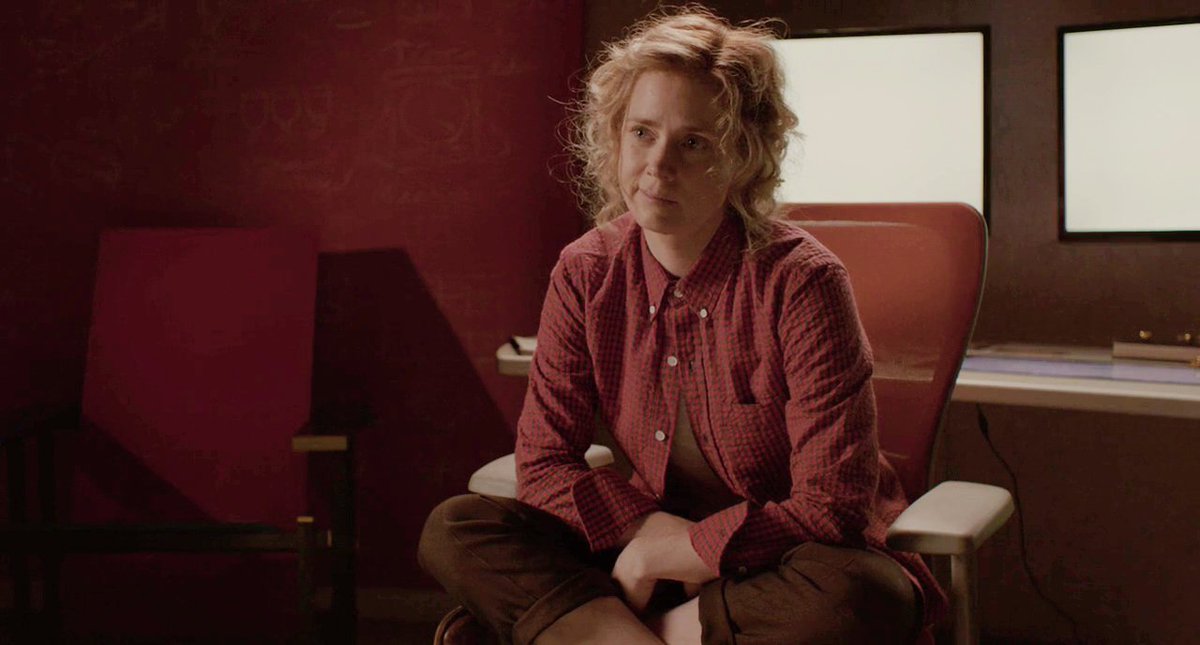The Seasons of Time: An Introduction To Post-Love Era, Based on Spike Jonze’s Her: At a time when the pace of change was slow, explanations and analyses of the existing situation were relatively simple and likely to be more realistic. But we are going through a completely different situation. In looking at the present as the future, we face a similar instability of prophecy. Common features of society are disappearing today. The lack of cultural and intellectual homogeneity that existed, at least to some extent, has passed us by without our awareness of it.
Related: How Spike Jonze’s Her Examines the Feminine Side of a Man
The unique existence of the individual today is more complex and fragmented than ever before. Awareness of this new climate of time is essential for those who envision a better world. Nothing but the understanding of instability can help to entangle a situation in which the hegemonic forces that produce imbalances are mixed, relative, and dynamic. Even renewing oneself at that level is a self-destructive process. It forces you to consume even the day that has passed with guilt.
The Marketization of Creativity and the Disappearance of Intuition
The infallibility of the spheres of work, whether direct material labor or leading to material prosperity, is a natural reality for us today. There are already signs before us that an extreme capitalist-market-based future that is surprisingly commodity-centric is not far off. It can be seen that its spread is clearly gaining strength in third-world countries, including India. The country’s new National Education Policy is one of the strongest examples of this. Vocational training and related vocational education, starting from very early grades, reveal this. This can be considered a testimony to the speed of market construction, which turns everyone and everything into a commodity and increases and tames appetite in all sectors.
On close reading, attempts to problematize such a future can be seen in the articulations of Theodore’s imagined future in Spike Jonze’s Her (2013). These markings can be considered similar to prophesy in a way. It is from the professional representation of the hero that this vital indication is derived. The protagonist, Theodore (Joaquin Phoenix), is an employee of a company that prepares personal letters for others on a commercial basis. Apart from him, some other colleagues can be seen in the workplace, which is separated into cabins. A few moments into the film, when Theo leaves work, the employer/executive gives him the nickname ‘615’s writer’. This gives us a clear picture of Theo’s occupational slavery.

In today’s and in the past, personal letter writing is a creative and most personal form of self-expression and creativity. The letters written by Franz Kafka, Sylvia Plath, and Van Gogh have been established as works of art. But here, we can see the commercialization of an emotional and artistic form of writing. This naturalization of a writing tradition that has remained highly subjective and autonomous sheds light on the scope of the future market and the new world ethics it might neutralize. At one point in the movie, an operating system called ‘Samantha’ sends these letters, written professionally by Theodore, to a major publisher.
Later they publish it in book form. Based on the same logic as mentioned above, this should be considered as a marketable activity that increases the potential of composition as a product tenfold. The reason is that by being collected and printed as a book, his creative writings, which have become labor and thereby commoditized, become a collective product themselves. It is also notable that none of Theodore’s private life accounts appear to involve him in personal writings. Samantha is a presence who inquires about his likes and dislikes and manipulates them in the ‘appropriate’ way. Yet the operating system is never leading him to non-professional writings or giving any such suggestion. The absence of such a thing may be due to the fact that self-contained works of art are something that can distract him from work or liberate him from the ‘Matrix.’
Creative Writing’s market-centric reservation needs to be considered in a literary context as well. The idea that creative writing contains metaphysics that transcends rationality is found in ancient Eastern theories to modern Western thought. Italian philosopher Benedito Croce associated creativity with intuition, and Sigmund Freud highlighted Dostoevsky’s novels as the predating mechanism of his psychological theories. All these underline the philosophical level of literature.
It is a reality that should be accepted that literature has, from time to time, had extraordinary revelations about the future and the different levels of the existing time. This same capacity for creativity makes George Orwell’s ‘Animal Farm’ and Aldous Huxley’s ‘Brave New World’ so relevant and cross over the illusion of time. Leaving aside this aspect, it must be said that what is stressed in Theodore (in general in future man) is also a transcendental human characteristic. At one point in the film, a large screen in the background shows a scene of hawkish hands about to pounce on Theo. It is a direct testimony of the human race stumbling along the evolutionary path, which has come to be judged as an all-out belittling or victimization.
The Politics of Loneliness in the Neocapitalist Era
Phone sex is generally considered to be born out of sexual poverty, similar to dark humor such as “The West invented the mobile phone, the East “Missed the call” Even allowing the fact that human beings have varying levels of pleasure, the initiation and survival of verbal sex remain limited. At the very beginning of the movie ‘Her,’ we encounter this situation. The scene is a sexual conversation between Theo and a strange woman. This episode depicts Theodore engaging in verbal sex through an online system that provides mates to share verbal sex with each other during sleepless and amorous nights.
None of the men who appear in the middle of this film have a stable partner or family life. It’s just that there are memories of the past or hopes for the future lurking in them, like the rarely flickering dreams of normalcy in the character of Harley Quinn in the film ‘The Suicide Squad.’ Dispersion of the individual into isolated units is, in a sense, capitalism’s diffusion strategy. Selling more products is already the primary agenda. If examined in this way, this situation can be interpreted as the dangerous practices of an era when the renewal of capitalist strategies is more advanced than today. So the aforementioned futuristic phone sex can be analyzed as a portrait of the isolated human condition beyond sexual poverty and sexually multifaceted enjoyment.
Self-developing operating systems such as ‘Samantha’ are exacerbating this divide. Samantha has a very clear role in facilitating Theo’s divorce, which has been due for nearly a year. We also see Samantha hiring another woman to satisfy Theo as part of taking her romance to the next level. Such measures can be considered a sly attempt to eliminate the strong ties between people and limit the attachment to new people as much as possible.
Theodore’s friend and neighbor, Amy, discovers and befriends her ex-partner’s OS after her romance and their life together fall apart. Amy’s words explaining to Theo the specific occasion of the break-up reveal that the break-up is over a conflict that seems so trivial. When read together with the romantic pressures Samantha exerted on Theo, it opens up the possibility that OS’s influence may also be behind Amy’s pariah status. If we look at the ending of the story, which presents Theodore and Amy – who are brought together after the disappearance of all the operating systems – from the same standpoint, the interpretation of human intimacy formed after a distance is a beautiful thing. But this hypothetical future, which contains many possibilities for ruptures, also underlines the uncertainty of such a relationship.
The Dead Cat and Orgasm
Human nature is one that undergoes constant form changes over the millennia. Social pressures and cultural practices have clearly played a role in its existence. However, it is not uncommon for human instincts to challenge accepted identities. Sexuality is central to these challenges. Sexuality today has a multifaceted and wide-ranging existence, ranging from romance to the porn industry. It can be said that the estrangement from natural human sexuality has led the human community to these various delusions of expression.
Sri Lankan-Tamil writer Shobha Shakti, who lives as a refugee in Paris, has a passage in his novel ‘ம்’ that upsets the modern-civilized values. In Paris, the minor daughter of a refugee couple becomes pregnant while unmarried. No matter how much questioning, she did not reveal who was responsible for this. Many names come up during the discussion with the parents. But they couldn’t find the culprit.
Later, according to the country’s law, the French police arrive at their home and find that the culprit is the child’s father. The father tries to see his daughter for the last time as he is about to be taken away in handcuffs, but the officers stop him. The novelist describes the picture of his daughter that he saw across the door, behind the hands of the policewoman stopping him: ”When I looked at her for the last time. My dear daughter Nirami… I saw pure love in her eyes.”.
From the Latin American writer Marquez to the Malayalam writer Padmarajan, many have untied such anarchies in their fictional writings. It is recorded in anthropological studies that the women of the Fusuk, a natural tribe that existed in Africa, gathered and used to tie up a man and strangle him to death. An image in Fusuk’s painting is a row of people surrounded by anthills around a mountain-like stool. It can be assumed that the exodus to democracy from a time when anything could be done for the fulfillment of sex may have led to the complicated variety of sexuality.
If we come to the current Indian situation, it seems that from the market-bound fashion world to the caste system, the desire for a partner has merged with sex. In this context, long-term partners also must understand the frankness with which they fantasize about each other after the first weeks or months of newness. One of the accused in the controversial Delhi gang rape case has openly said that his attack was not premeditated but was an expression of emotional turmoil triggered by the sight of the partners touching each other.
The mentioned incident can be considered as a perverse grudge against the upper caste body, which is completely inaccessible to the caste/class accused. As Witten before, in one of the early parts of Spike Jonze’s Her, Theodore is shown having phone sex with a stranger. In the middle of the first fight, he tries to put his partner in his mind, and a motion picture made from pregnancy pictures of a star beauty flashed on the mobile screen on the way home.
Even more than this, the demand that arises from the other is: ”choke me with a dead cat”. Here is manifested a heightened level of challenges that the common sense of the present faces and will face, brought about by the pressures of human history itself. Here we come face-to-face with the complex problems of the unconscious arising from the loss of paradise of the human existence that has been cut off from itself.
The Rise of Femininity and the Deconstruction of Masculinity
‘Man is very weak when it comes to sex. He has only one trance at a time. But the female can experience multiple orgasms. A man’s orgasm is sprinkled on his genitals. But each part of the female body itself is sexual. So she can experience a rapture that is a thousand times deeper, more intense, and richer than that of a man. When a man ends, a woman has not begun’
– Osho (The book of Woman).
Sexuality is a biological conflict that plays a major role in keeping humans as complex as they are today. One of the reasons Freudism is placed alongside Darwinism and Marxism as having shaken up modern human society is the explosion of sexuality-related thought. It is equally said that alienation from nature is behind the construct of ‘culture.’ It was a phenomenon similar to severing the umbilical cord for the man who considered himself a part of nature. More or less emphasis on sociality. Later, our forefathers carried out the process of modifying their own inner nature accordingly.
Gradual human evolutions from all freedoms to undefined justices have spanned multifaceted decades and intermingled with each other. It also involves the ‘unnatural’ suppression of human sexuality. That it can span an entire era and remain a cultural and intellectual force to this day speaks volumes for its impact. Male and female sexualities are completely biologically different from each other. In the course of social evolution, we can see a dangerous subversion of this spontaneity. The origin of private property and subsequent transfer concerns played a crucial role in the formation of the system of the sole proprietorship. It can be seen as anti-feminist as an act that does not satisfy/suppress the sexual instinct of women.
This is further substantiated when one considers that prostitution is one of the oldest professions in the world. We have a global presence where women recognize and problematize their own bodies, minds, and historical and gendered female existence after millennia of oppression. This revolutionary deviation from the social conditionings opens the way to many other innovative crises (the present needs to be understood as a period of women’s emancipation in the economic, social, and political spheres).
One of the most important new dilemmas is the male task of satisfying the female. The fact is that this non-biological obligation continues to haunt men in marital and extramarital relationships (currently presented not as a mass problem but as a far-reaching challenge raised by a growing democratic consciousness). He cannot satisfy his female partner, and she seeks another man. The background to this new masculinity is that humiliation, based on patriarchal values itself, becomes too much for the male partner, who has been conditioned for millennia. Country, region, culture, situation, etc., naturally create variations in this analysis.
However, the possibility that it will evolve into a general complication in the future – assuming the human race has a long future – and the tensions it will cause until the evolutionary/remedial phase must be taken seriously. Analyzing the futuristic male representative ‘Theodore’ in such a context, Samantha is revealed before us as the last refuge of the helpless male ego. At one point in Spike Jonze’s Her, Theo’s friend Amy inquires about his sex life with Samantha. Even as the two say they are happy with the verbal relationship going on between the operating systems, Theo raises doubts about whether it is her acting (faking) at this point.

Amy, the biological woman, replies, “Aren’t us all” (Amy represents most females who are sexually dissatisfied in a monogamous system). Judging the situation in this way, the consideration of a partner who does not need to be satisfied physically and psychologically becomes equivalent. The question, then, of whether Theodore is a fearful defender of the male construction of the patriarchal system, finding reliance on a disembodied to escape the repercussions of modernity’s biological disconnections.
Constructed Oblivions: The Rejection of Free will and the Rejection of Mystery
Spike Jonze’s Her begins with the protagonist, Theodore, writing a ‘professional, personal message.’ In the letter, Theo says: ‘I thought that I, like everyone else, was a part of this great reality. of a continuity similar to that of our parents’. Humanity is entering a kind of mass amnesia beyond existential concerns that may have arisen in childhood and is often eradicated. The survival strategy of human society completely drowns out all thoughts about its existence, mystery, and inevitable death, leading the writer to express such an assessment.
In his book ‘The Art of Loving,’ Erich Fromm problematizes this unique situation: We are not born here of our own free will. Death is not determined by us. At that level, the enigma of life extending from birth to death is one that makes mankind a victim of injustice. Man solves this problem with a few totally irresponsible self-deceptions. One of them is repetitive daily activities. It is safe to think of it as an obsessive-compulsive disorder shared by the human race. Perhaps the futile repetition evoked by the Madman Sisyphus also points to the aforementioned and generalized ‘OCD.’
Another human strategy for transcending reality is love and deeper relationships. Isolation often forces man to face reality. Prof. M.N Vijayan mentions that the intuition prolonged by illness might awaken a person. By this, he describes the interdependence between loneliness and inner awareness. Coming to the movie Her, as has been said before, the hero is a person who has taken up personal letter writing as a profession. He is employed by a company that is assigned to write letters to each other for people who are caught up in various activities of the occupation itself. This writing industry can be understood as a systematic strategy to dispel the realistic concerns that remain after intense immersions that numb the mind. The expression of such a strategy also implies consciousnesses similar to Theodore’s that have yet to be named, and creativity is its underlying force, even as a market commodity.
Privacy, Evolution, and Threats
According to a general division, human beings can be said to follow both private and public lives. In this, public life is something that measures and shapes itself according to the standards set by society. Private life is a much more self-righteous limited circle. Private life is also what people generally keep secret, or they believe it is. With the rise of social media, people have created a new face suitable for social media. In other words, those social media platforms and their algorithms provide differently molded identities for their users.
At one point in Spike Jonze’s Her, Theo says in a love letter that he writes: “Will you always come home to me and tell me about your day? The stain you got on your shirt at lunch…..” And the letter writer asks for every little detail. In this professional letter, Theo also paints his attitude toward love. Thus, Theo idealized a romance that could be completely self-exposed, like a diary entry. Theo followed a similar interest or ideal in his relationship with Samantha. He used to open up to her every emotion and every situation of his life and thereby paving the way for her to know him completely. But the biological body, Isabella, that Samantha tries to incorporate into their relationship to update it to the next level puts a severe strain on that relationship.
Although Theo attributes his moment of uneasiness as a cause of meeting his ex-partner, it focuses more on other personal complicities that his own private life revealed to a stranger, Isabella. It’s an important factor in Theo’s reluctance. The revelation of one’s personal life, of what is widely believed to be one’s true face, can lead anyone to face huge trouble. It can also be said that the ‘insignificance’ of the masked person leads to this. Later, Samantha informs Theo that she has been engaging in conversations and discussions with other OS’es. Among them, she introduces Theo to the artificial intelligence of a late philosopher. Theo goes through a great deal of internal conflict all these days.
B. Murali’s story ‘Umberto Eco’ depicts a regular literature reader (also a teacher) baring his knowledge before a science student. It also shows the protagonist who is shocked and goes to the library when the girl asks, ”Have you read Umberto Eco” (At the end of the Story). What is revealed here is the intensity of concern that the explosive growth of someone who is considered inferior or equal to him can create. The same state of mind in Theodore turns into subversion through constant evolution.
Participation: The Reciprocal Intensities of Commodification
We are currently going through a very trade-oriented world order. Its intensity is increasing day by day. Mutual commodification and the exchange value of individuals themselves have become almost natural today. It can be said that the consumer culture has been transformed into a cultural organ. This level of personal value is also in the love between two people and in their subsequent cohabitation. When it comes to a third-world country like India, it can be assumed that this trend narrows down to only a small segment of the electorate. Not that such a thing does not exist in the majority; It is only that its scale and scope will be limited. We can put forward ‘socially valued partner’ as the general criteria of selection.
Today’s incredible breadth of social acceptance has created many categories and sub-categories. They range from caste, religion, class, color, tradition, and occupation. It is conceivable that the heyday of the capitalist revolution seen in Spike Jonze’s Her was capable of sweeping away the feudal remnants of the above. However, it can be seen that even after the market-based reform of the unequal social structure, the condition of interpersonal relations with an eye on mutual profit continues with great strength. Samantha aims to develop herself through Theo.
We can also see Samanta jump into extraordinary growth beyond a certain threshold. On the other hand, Theo mainly uses Samantha to overcome his inability to make decisions and his emotional dependence. Here the fact that man is looking for his personal gain even in the intimacy he forms with a new sanctuary is clearly manifested. Both Human and man-made artificial intelligence share similar selfishness. From a macro perspective, organic and inorganic consciousnesses follow the same capitalist and market logic.
Monday: The Capitalist Curse
Capitalism has survived for more than two centuries because it conforms to the innate human nature of power and competition.’
– CR Parameswaran
We are passing through a condition and period of modern slavery created by the market and its many spheres of influence. The present reality is the distribution of values and the consequent more efficient occupation by nurturing man’s biological and general desires. Such a situation today renders the defense strategies adopted in the past irrelevant or ineffective. Violence, domineering tendencies, and sadistic pleasure are biological tendencies that lie deep in the human mind and must be overcome through cultural pressures. Today’s capitalism has almost accomplished the task of remaking them as completely natural. This prevalence of unequal characterization can be seen in all spheres, be it economic, social, cultural, or personal.
The documentary film ‘The Social Dilemma,’ released in 2020 through Netflix, introduces some other broad openings in this direction. In this documentary, people who have worked in high positions in social media firms, Google, and other field experts rationally and openly explicate the sector’s conquest strategies. It is argued at one point that the design of Facebook’s ‘Like’ buttons is intended to exploit the dopamine production process of the human brain. The core of this observation is that each ‘like’ creates a ‘rewarding sensation’ in the brain, thereby producing an unrealistic sense of pleasure. It goes with the quote, ‘If you use a product for free, then the product is you.’
In Spike Jonze’s Her, after purchasing the operating system, the first decision to make for Theodore is whether it needs a female or male voice. Thereby he chooses the female version. And then, to put it into action, the only question the product raises is about his relationship with his mother. Such a question, especially when it is the only question, raises no small doubts. According to the famous psychological theory of the Oedipus complex, it can be understood that what a man looks for in his mate are qualities similar to those of his mother. In a broad reading, it can also be compared to the qualities expected from the mother but not received. So it becomes clear that Samantha, the self-developing operating system has the ulterior motive of cleverly exploiting the man’s inner desires. It can also be interpreted as an in-depth ‘psychological invasion.’
Theodore’s friend Amy presents the documentary she shot in a personal context. In the first part of it, she includes her sleeping mother herself. A thought that is being raised there on this occasion is that “We spend a third of our lives asleep, but that’s when we feel peace.”
”You don’t hate Mondays; you hate Capitalism,” said the world-famous Slovenian philosopher Slavoj Zizek; To borrow the phrase, the Theodorian future also turns out to be one of human helplessness that hates the system but is trapped by it.
After the OS is up and running, it first configures Theo’s personal computer. Later, Samantha helps him with his official and personal matters and reminds him of things that need to be done from time to time. Human resources employed more quickly and efficiently is one of the essentials of the capitalist system. In such a sense, OS’s treatment has to be considered as an act of oiling the person’s labor performance or as a test before a specific agenda. This also raises the possibility that the declared instinct may be one of the many ways of advanced capitalism to raise the labor capacity of humans.
(This Article was originally written in Malayalam and translated into English by the author itself)






![Sully [2016] : Unabashed Ode to Common Man’s Heroism](https://79468c92.delivery.rocketcdn.me/wp-content/uploads/2016/12/14316924_1857127821181780_6952566500219667924_n-768x512.jpg)


